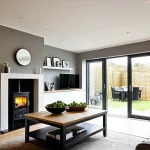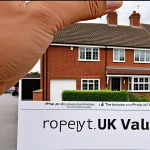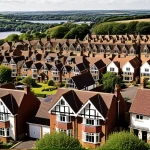Essential Eco-Friendly Materials for UK Home Design
When selecting eco-friendly building materials UK for home design, it’s crucial to choose options that align with both sustainability goals and the specific demands of the UK climate. Sustainable home materials such as timber from responsibly managed forests, reclaimed bricks, and natural wool insulation are popular due to their low environmental impact and availability locally. For exteriors, materials like clay tiles and lime mortar offer durability while maintaining breathability, crucial in the damp UK environment.
Green design options often emphasize renewable, non-toxic, and recyclable materials. For instance, hempcrete and cork insulation are gaining traction for their excellent thermal properties and carbon sequestration capabilities. Many of these materials carry eco-certifications such as FSC for wood or BRE’s Green Guide ratings, ensuring they meet strict environmental standards.
Have you seen this : How Can You Transform Small Spaces into Functional Rooms?
Comparing these materials involves considering not just sustainability but their suitability—how well they perform in insulation, moisture resistance, and lifespan under UK weather conditions. For example, natural stone suits exteriors exposed to frequent rain, while sustainably sourced hardwoods can enhance interior aesthetics and longevity. Prioritizing materials with proven eco-certifications helps homeowners in the UK make choices that support both environmental responsibility and practical, long-lasting home design.
Practical Ways to Incorporate Eco-Friendly Materials in UK Homes
Successfully integrating sustainable materials into UK homes requires thoughtful planning for both new builds and renovations. For interiors, focus on eco-friendly interiors tips such as choosing low-VOC paints, natural fibre carpets, and sustainably sourced timber for flooring and furniture. These materials improve indoor air quality while aligning with green design principles.
In the same genre : How Can You Transform Your UK Home Space on a Budget?
Exterior improvements also play a crucial role. Cladding options like reclaimed wood or fibre cement boards, combined with natural insulation materials such as sheep’s wool or cork, enhance thermal performance and reduce environmental impact. Roofs fitted with recycled clay tiles or metal shingles offer durability and recyclable benefits, making them ideal eco-friendly building materials UK.
Balancing sustainability with aesthetics and budget involves prioritising durable and renewable resources that meet both functional and stylistic needs. One practical approach is to integrate local, certified materials to ensure availability and reduce transportation emissions. Planning landscaping with native plants and permeable paving improves sustainability further.
Incorporating these green home renovation UK strategies helps homeowners achieve energy efficiency without compromising design appeal. By carefully combining materials and techniques, integrating sustainable materials becomes not just an environmental choice but a practical solution tailored to UK home design challenges.
Benefits of Using Eco-Friendly Materials in UK Home Design
Using eco-friendly building materials UK offers measurable benefits of sustainable building that directly impact energy efficiency and costs. Materials like sheep’s wool insulation and hempcrete provide superior thermal regulation, lowering heating needs during cold UK winters. This translates to reduced energy bills and a smaller carbon footprint. Precise studies show that homes using sustainable home materials can achieve up to 30% better energy performance compared to conventional builds.
Beyond energy savings, these materials contribute to a healthier indoor environment. For example, natural plasters and low-VOC paints reduce airborne toxins, enhancing air quality and occupant well-being. This addresses common concerns such as dampness and mold in UK climates, fostering a more comfortable and resilient home. The eco-friendly home advantages also include improved humidity control due to breathable materials, which is critical for long-term building durability.
Additionally, sustainable materials add value to a property over time. The demand for green homes is rising, and eco-certifications like FSC or BREEAM can influence resale price positively. Homeowners benefit from a reduced environmental footprint alongside enhanced comfort and economic savings, making the use of eco-friendly materials a practical investment for UK home design.







